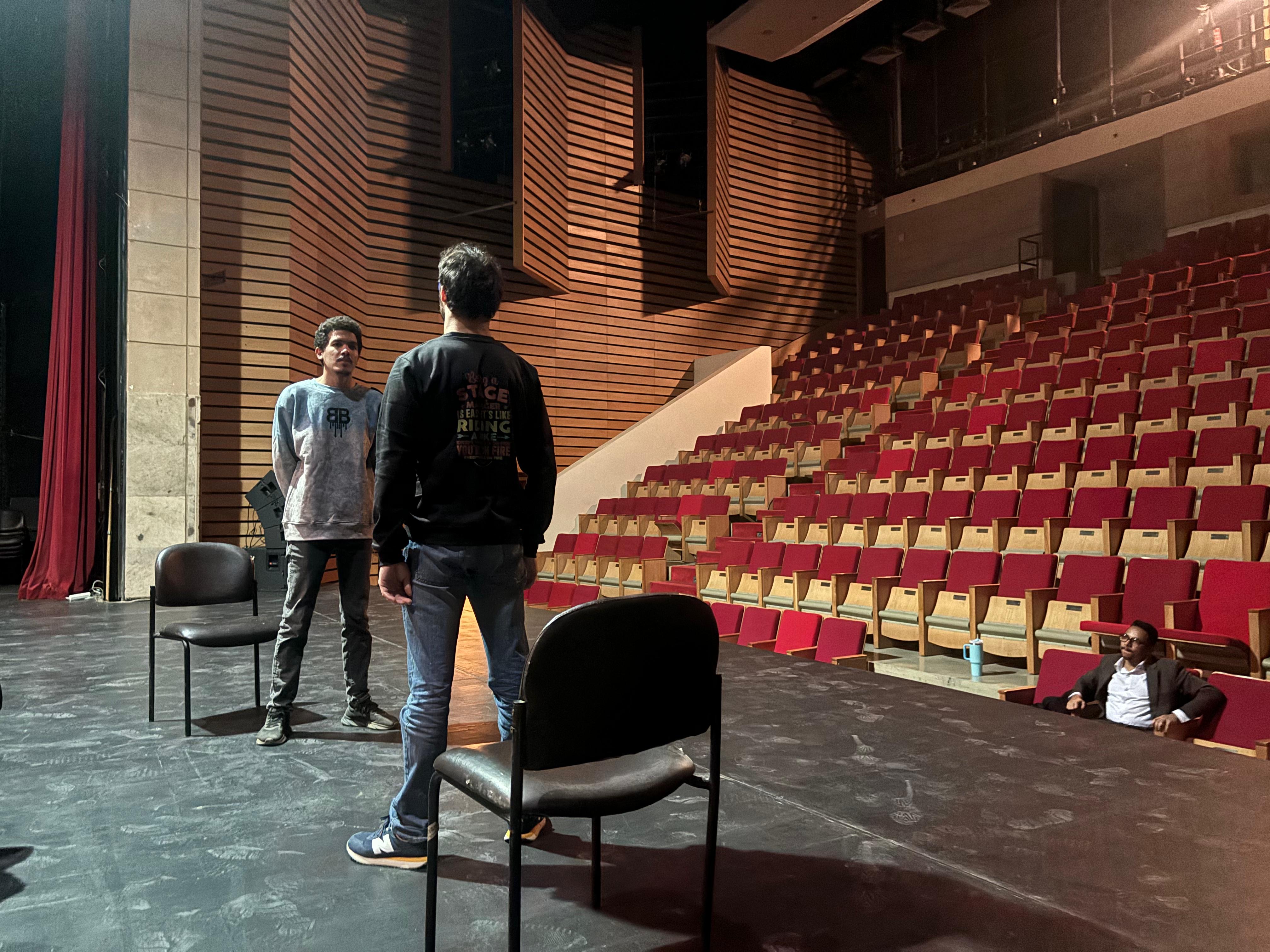When the interactive performance of Da Zanbokom (It's Our Fault) sold out each night on campus in February, Jillian Campana, theatre professor and associate dean for undergraduate studies and research at AUC's School of Humanities and Social Sciences, and crew members were pleasantly surprised when they realized that people were sneaking in to catch the performances.
"There were people standing behind the seats," recalls Campana. "I thought, 'This is beautiful -- someone sneaking into a play.'"
Unlike your run-of-the-mill performance, Da Zanbokom wasn't performed in a theater. Instead, It was set among fragrant citrus trees and budding flowers in the University gardens. Small groups of viewers were led from place to place to watch five plays, each set in a different location in Egypt and tackling a specific climate change issue.
Between each play, a guide led the groups from one location to the next while introducing the key issue in the upcoming play. "So if the play was set in Sharm El Sheikh, for example, the group learned about pollution in the Red Sea and how it affects marine life," Campana says.
What sets Da Zanbokom apart from other AUC productions is the sheer amount of community involvement. Alumni playwrights wrote three of the five plays, 43 students worked on the cast or crew, and the writers sought advice from faculty members from various disciplines to deepen their knowledge of the particular problem the play addressed.
"It was amazing to see how connected and included everyone was," reflects Sarah Gouda, a theatre junior who worked as a guide for the production. "No matter what role someone had, they were also giving feedback and ideas. It felt like we were all one big family building this masterpiece."
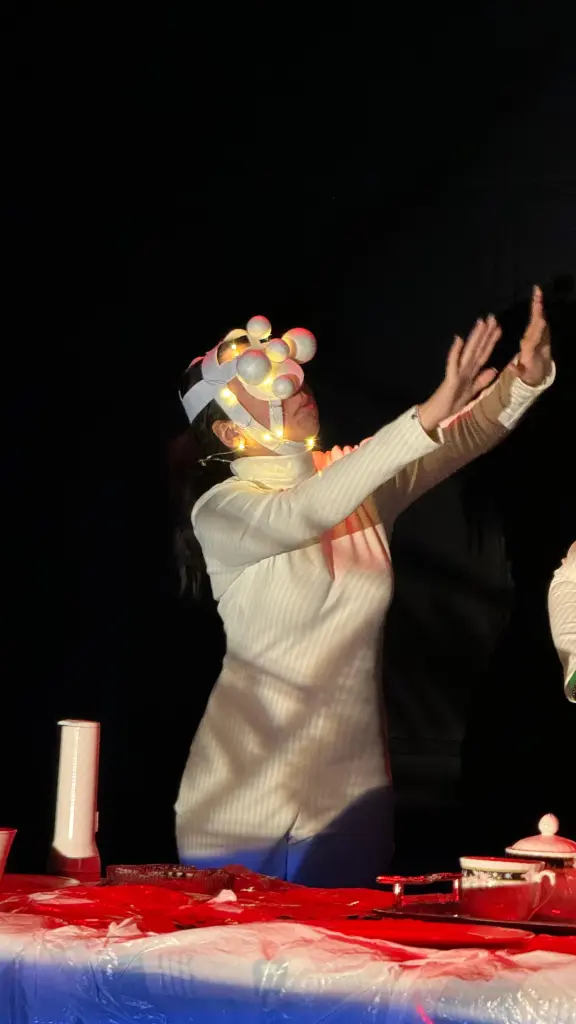
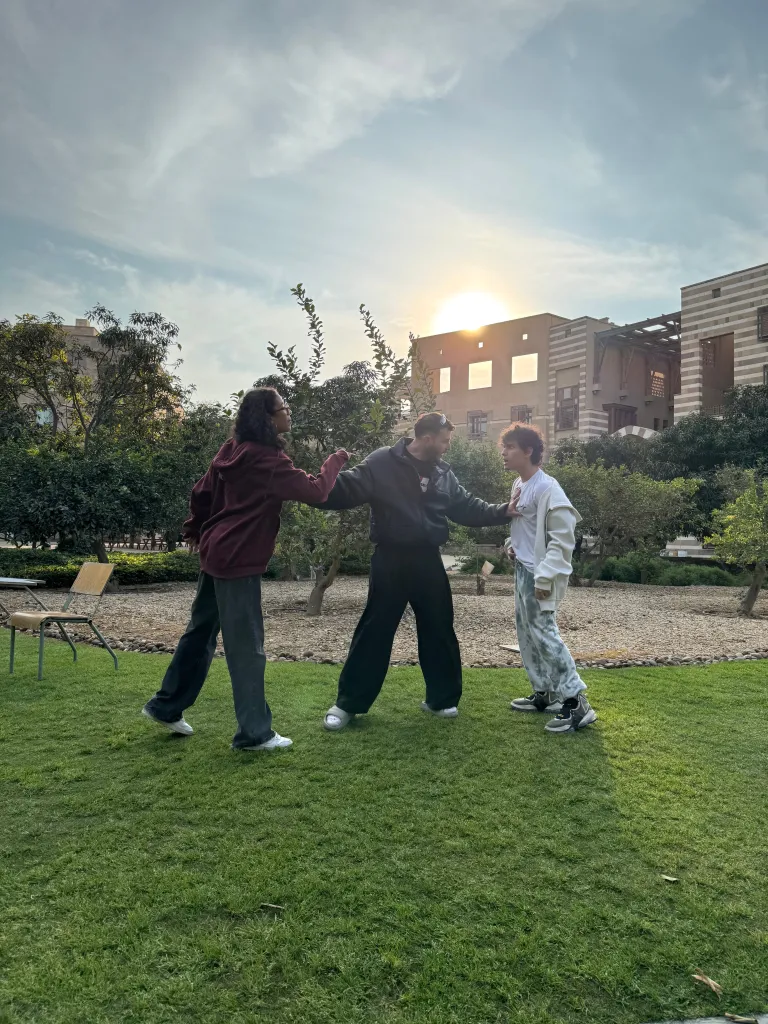
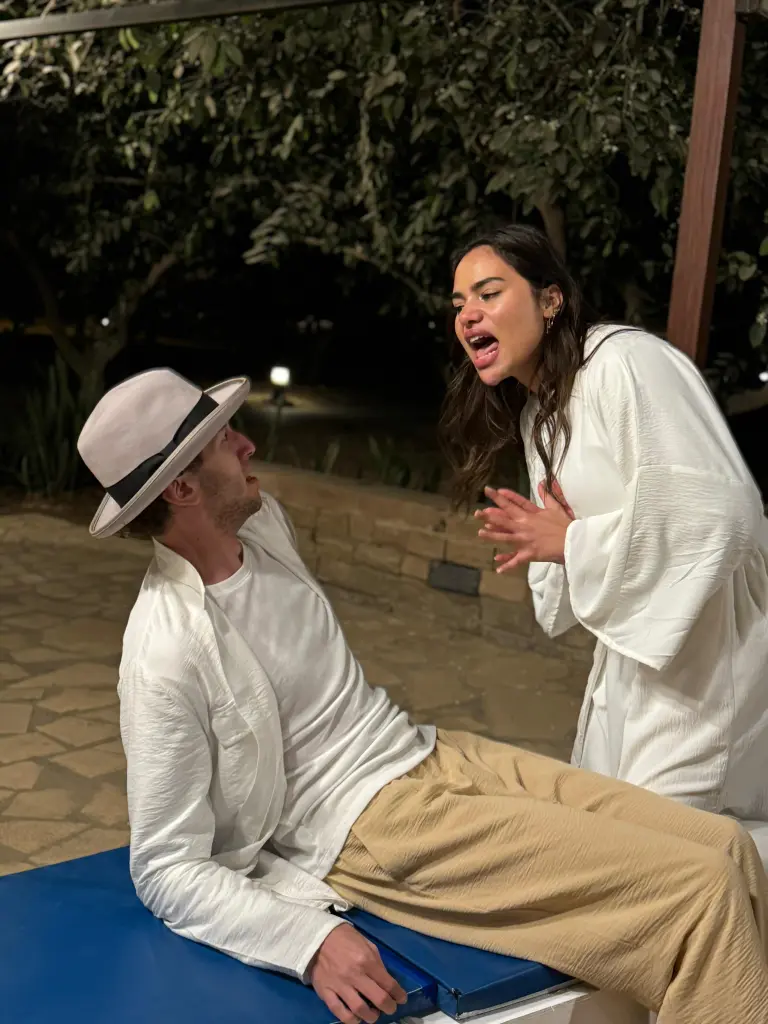
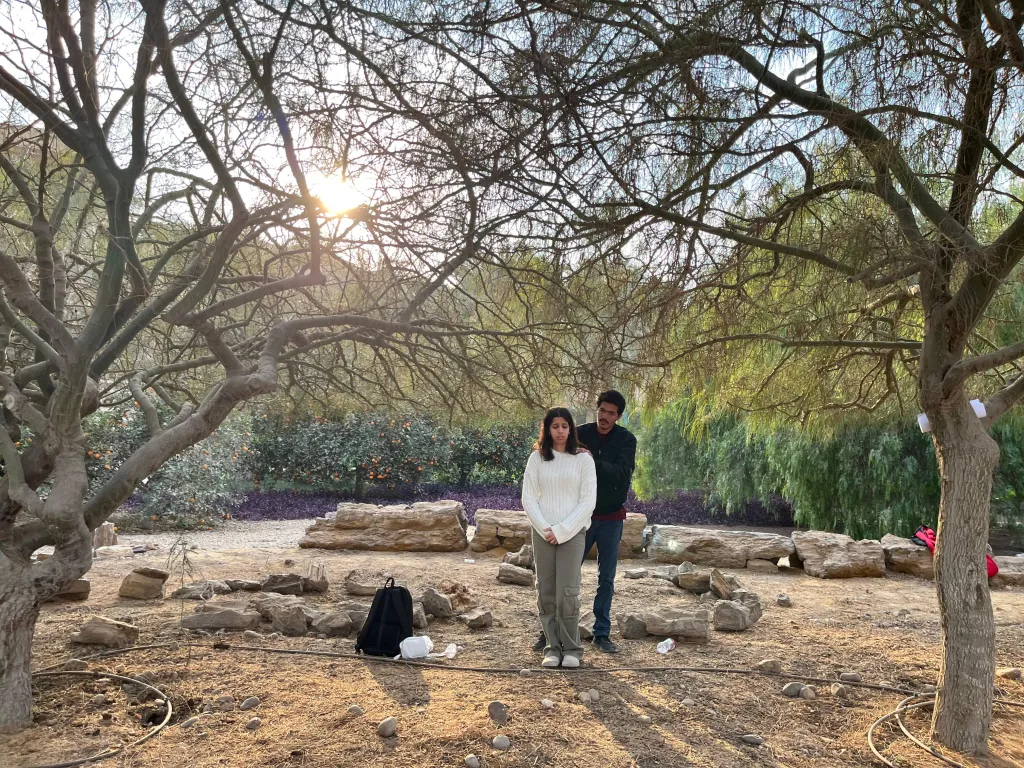
Once More, With Feeling
Once More, With Feeling Following the performances, Campana conducted a survey with the audience members, actors and crew to understand what they might have learned throughout the experience.
"Most people reported an increased awareness of how these specific issues could affect their lives," she said, noting that many reported adopting more eco-friendly practices after working on the production.
If you didn't get a chance to see Da Zanbokom at AUC New Cairo, you haven't missed the boat. Campana, cast and crew are currently filming the five plays -- and producing five more -- to archive and distribute across schools in Egypt.
"We spend almost a year working on a play, and then it happens, and it's beautiful. But then it's over," Campana explains.
With Da Zanbokom available in video form, viewers everywhere can gain something from watching the plays -- whether a fact, feeling or realization.
The plays will also live on in an anthology that will include 10 introductory articles covering each climate issue, and Campana is working on an article about the plays for Critical Stages, a journal focused on theatre, performance, drama and art. "It's a combination of academic and dramatic literature," she says.
Campana's personal stake in the project stems from her experience returning to Cairo in 2016 after more than a decade away. She describes seeing more people, pollution, cars and garbage. "What really struck me was that young people didn't feel like they could talk about climate change because, to them, it felt insurmountable," she recalls. "Students would say, 'I can't do anything about that, so I try not to think about it.'"
Today, having written a number of plays dealing with societal challenges -- from sexual harassment and human trafficking to post-traumatic stress disorder and the Caste system in India -- as well as writing and performing her play, It's Just One Bag, Isn't It? at COP27 two years ago, Campana hopes that issue-focused performances can keep the difficult conversations going.
"Learning through theatre or film allows people to distance themselves from an issue while still identifying with the characters and maybe going on that journey," she says. "We want them to understand their place in the problem without feeling like they have the burden to fix it right now."
-By Devon Murray


